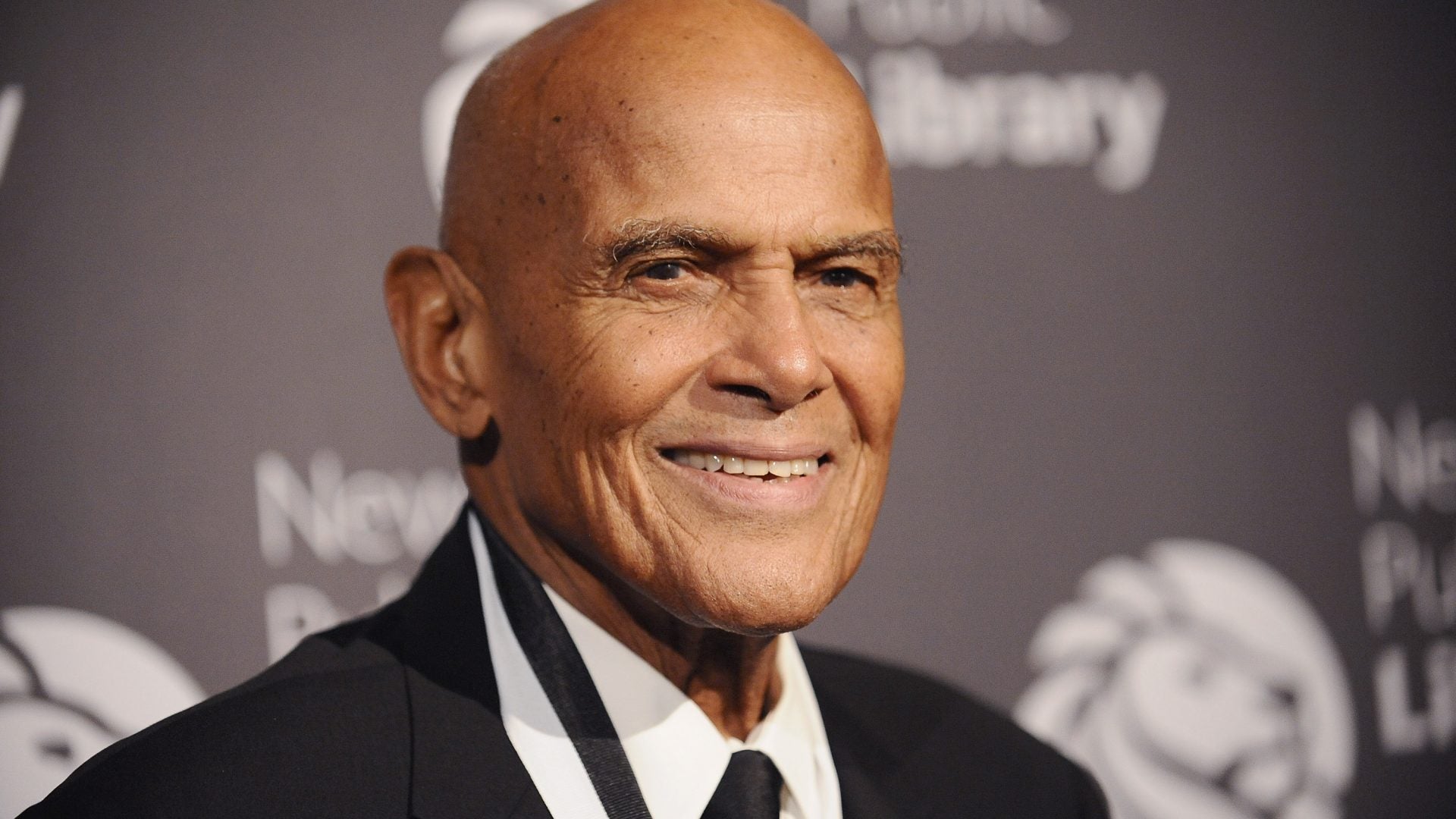
Dr. the Honourable Harry Belafonte
Musician, Actor, Social Activist and Philanthropist.
Harry Belafonte was born in Harlem in New York City in 1927. Overwhelmed and intimidated by its ghetto streets and thinking the islands to be a safer place, his immigrant mother sent him back to the island of her birth, Jamaica. The island and all its variety became a cultural reservoir, which he ultimately drew upon for his artistic expression. At the outbreak of World War II, his mother retrieved him from the island and brought him back to Harlem. He tried to adapt to his new environment, a process which came with great difficulty and finally, unable to finish high school, he enlisted in the United States Navy and served for almost two years as a munitions loader. After his tour of duty ended, he was honorably discharged and returned to New York City where he worked both in the garment center and as a janitor’s assistant.
For doing repairs in an apartment (of Clarice Taylor and Maxwell Glanville) Belafonte was given as his gratuity a ticket to a production of “Home is the Hunter” at a community theatre in Harlem called the American Negro Theatre (A.N.T.).
The world that the theatre opened up to him put Belafonte, for the first time, face to face with what would be his destiny – a life in performing arts. He joined the Dramatic Workshop of the New School of the School of Social Research under the tutelage of the great German director, Erwin Piscator, and with classmates like Marlon Brando, Walter Matthau, Bea Arthur, Rod Steiger and Tony Curtis – just to name a few – Belafonte became thoroughly grounded in the world of his choice… theatre.
Paralleling this pursuit was Belafonte’s immersion in the world of Jazz. His love of the culture profoundly shaped his deep interest in its workings and revelations. From this experience he developed a relationship with the young architects of the art form, the geniuses of modern jazz and on the occasion of his first professional appearance had Charlie Parker, Max Roach, Tommy Potter and Al Haig as his “back-up band”. Since that launching, Belafonte has sustained an inordinately successful career:
His RCA album “Calypso” made him the first artist in industry history to sell over 1 million LP’s.
His first Broadway appearance in “John Murray Andersons Almanac” gave him the coveted Tony Award
As the first black producer in television, he won his first Emmy for his CBS production of “An Evening With Belafonte” directed by Norman Jewison
At the dawning of his cinematic film career, “Carmen Jones”, took top critical honors and attracted Oscar nominations
His many firsts in the overturning of numerous racial barriers in the world of culture in America is legend
In the early 50s, Belafonte met a young Dr. Martin Luther King, Jr. on his historic visit to New York. From that day until the leader’s assassination, Belafonte and King developed a deep and abiding friendship that for Belafonte still stands as one of the most precious of his experiences. Dr. King said of his friend that “Belafonte’s global popularity and his commitment to our cause is a key ingredient to the global struggle for freedom and a powerful tactical weapon in the Civil Rights movement here in America. We are blessed by his courage and moral integrity.” Belafonte was prominent in the contribution to the ending of the oppressive Apartheid Government of South Africa and the release of his friend, Nelson Mandela, after twenty seven and a half years of incarceration.
Belafonte was appointed by President John F. Kennedy as the cultural advisor for the Peace Corps. He served for five years. Harry Belafonte has been honored many times by such diversified groups as the American Jewish Congress, the NAACP, the City of Hope, Fight for Sight, The Urban League, The National Conference of Black Mayors, the Anti-Defamation League of B’nai B’rith, the ACLU, the State Department, the Boy Scouts of America, Hadassah International and the Peace Corps. He has received awards such as The Albert Einstein Award from Yeshiva University, in 1981, the Martin Luther King, Jr. Peace Prize and in 1989, he received the prestigious Kennedy Center Honors for Excellence in the Performing Arts and the Acorn Award from the Bronx Community College for his work with children. He was the first recipient of the Nelson Mandela Courage Award and was honored at the White House with the 1994 National Medal of Arts from President Clinton for his contributions to cultural life in the United States of America. He has received honorary degrees from City University of New York, Spellman College in Atlanta, Tufts University, Brandeis University, Long Island University, Bard College and most recently Doctor of Humane Letters from Columbia University and many others.
Disturbed by cruel events unfolding in Africa because of war, famine and drought, Belafonte set in motion the wheels that led to “We Are the World” on January 28, 1985. He contacted manager, Ken Kragen, who responded favorably and together, along with others, undertook to guide and direct the project known as USA for Africa. In 1987, Belafonte accepted the appointment as UNICEF Goodwill Ambassador, thus making him the second American to hold this title – the first was Danny Kaye. Belafonte has continued to devote himself globally to civil and human rights issues, focusing in particular on the United States and Africa.
Belafonte also has two children from a previous marriage – Adrienne and Shari and two children David and Gina from his 2nd wife Julie. He boasts of five grandchildren – Rachel, Brian, Maria, Sarafina and Amadaus. He says of them, “They represent my final contribution to a world in need of love.” Mr..Belafonte is currently married to Ms.Pamela Frank, of Boston.